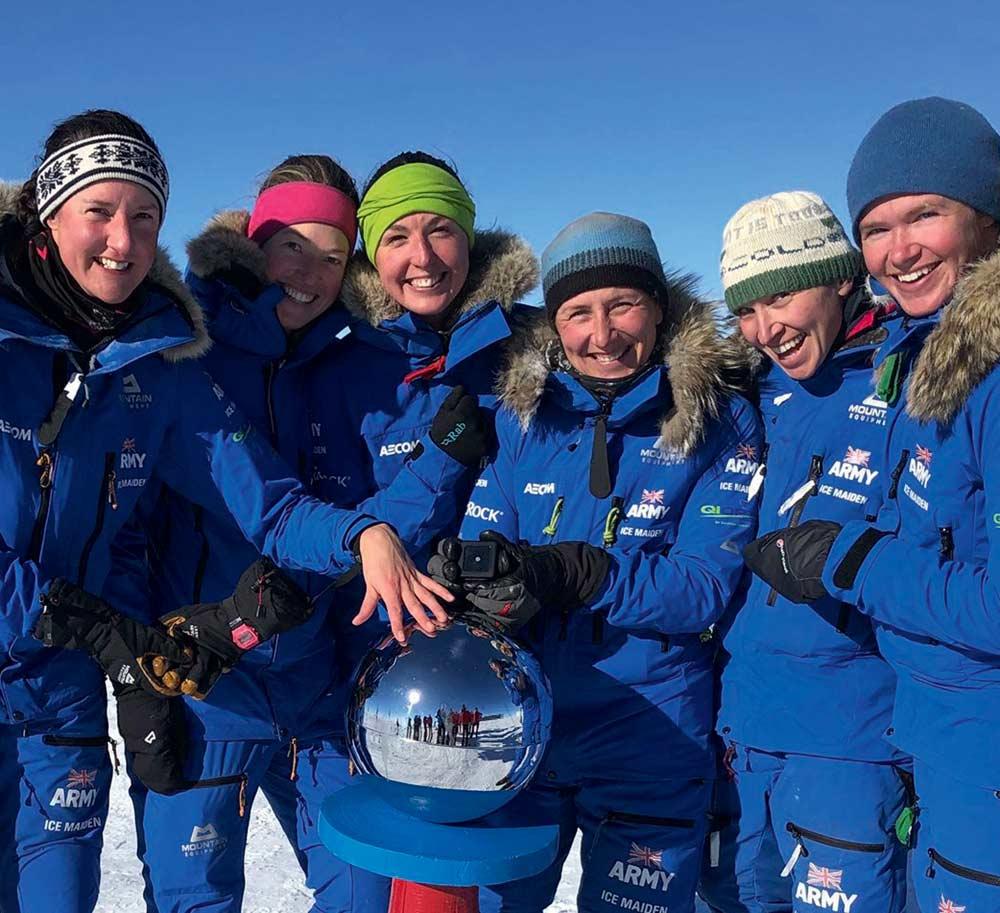
The Highlands:
The first polar bear to be born in Britain for 25 years made its first public appearance in March. The cub, later named Hamish after a public vote in which 36,000 ballots were cast, was born to two resident bears, Victoria and Arktos, at the Highland Wildlife Park at the end of last year. Newborn cubs are very vulnerable – they weigh little more than a guinea pig and only open their eyes after their first month – so Hamish was kept out of public view for some months. But once news of his arrival spread, people flocked to see him: reportedly, visitors to the zoo almost doubled in the months after his birth.
Leeds:
In January, a cash-strapped student woke up from a nap on a train to find that a kind-hearted stranger had left £100 on her lap. While travelling to her home town of Leeds, Ella Johannessen, 23, had made an emotional call to her mother about her financial worries. She had got into debt in her final year at university after giving up her part-time job to focus on her studies. Later, waking from her nap, she found five £20 notes under a napkin – and burst into tears. She said the gesture showed that there was “kindness, and good people, in the world”.
London:
A London teacher became the first British winner of the $1m Global Teacher Prize in March. Andria Zafirakou, 39, who teaches arts and textiles at a community school in London, was commended for the support she has given the deprived children in her care, including creating a quiet space for them to work, after realising many lived in overcrowded housing, and working with local police to ensure they get to and from school in safety. She has used her prize money to set up a charity, Artists in Residence, which aims to promote creativity in schools by providing them with access to time with leading artists.
Liverpool:
An Afghan refugee who arrived in the UK aged 15, won a place at Cambridge and then trained as a doctor, was awarded the Rotary International Peace Award in July, for the initiative he started to help the country he left behind. Dr Waheed Arian’s charity, Arian Teleheal, founded with colleagues at Aintree University Hospital in Liverpool, allows specialist doctors in the West to share their expertise, in real time, with medics in war zones. As a teenager, Dr Arian was told he’d probably become a taxi driver: “I said ‘OK fine’, but I had my own plans.”
Herefordshire:
A former teacher who has survived two brain tumours became the fastest woman to row solo across the Atlantic in March. Kiko Matthews, 36, from Herefordshire, had never picked up an oar until last year, yet travelled the 3,000 nautical miles from Gran Canaria to Barbados in 50 days, rowing for 16 hours a day. One of only seven women to have made the crossing solo, she beat the record by six days. “The thought that eight months ago I was lying in hospital having my brain operated on, and now I am here having rowed the Atlantic, I guess I am a bit proud,” she said on arrival.
West Sussex:
A growing number of Britons took up “plogging” this year to tackle the menace of litter. A fitness trend that originated in Sweden, it involves simply going for a run with a sack and filling it with rubbish as you go. Ploggers have been seen all over the UK, and as far afield as Thailand. A hero of the movement, US humorist David Sedaris, has picked up so much litter on walks around his home in West Sussex, he has had a rubbish truck named after him.
Somerset:
The water vole, one of Britain’s most beloved and endangered riverine creatures, was reintroduced to Exmoor National Park, where it has been extinct for more than 30 years. Immortalised as Ratty in The Wind in the Willows, the water vole is the nation’s fastest-declining mammal. In September, 150 voles were released along the River Aller on Somerset’s Holnicote Estate. They are being monitored by volunteers, rangers and the public, and 150 more will be released in the spring.
Conwy:
A man who fell in love with a derelict castle as an 11-year-old boy bought it this year, so that he could preserve it for the nation. Mark Baker became entranced by Gwrych Castle in Abergele, north Wales, while playing in its ruins 22 years ago. As a teenager, he wrote books about the 19th century Grade I-listed building, and met the Prince of Wales and Tony Blair to discuss its future. He founded a charity to save it, and in June, it was finally able to buy it. Now an architectural historian, Baker plans to restore the castle and open it to the public.
And some remarkable achievements from elsewhere

***
A team of British soldiers became the first all-female group to ski across Antarctica using muscle power alone. The Ice Maiden expedition reached Hercules Inlet in January, having covered 1,000 miles in 62 days. Led by Major Nics Wetherill and Major Natalie Taylor, of the Royal Army Medical Corps, the six women (pictured) walked for up to 27 miles a day in temperatures as low as -40°C, pulling 12-stone sledges.
***
An amateur runner who works full time as a nurse came second in the Boston Marathon in April, beating scores of professional athletes in only her second marathon. Sarah Sellers, 26, had got up at 4am to train before shifts; she completed the course in 2:44:04.
***
Thanks to what the UN called “the world’s largest beach clean-up”, hatchlings from a vulnerable turtle species were born on Mumbai’s Versova beach for the first time in 20 years. Olive ridley turtles returned to the beach after volunteers removed 5,000 tonnes of litter.
***
Forty years after losing his feet to frostbite on Everest, a 69-year-old climber finally made it to the summit. Xia Boyu, from China, is only the second double amputee to climb Everest, and the first to do it from the Nepali side. He lost his feet to frostbite in 1975, after giving his sleeping bag to a sick friend in a storm.


